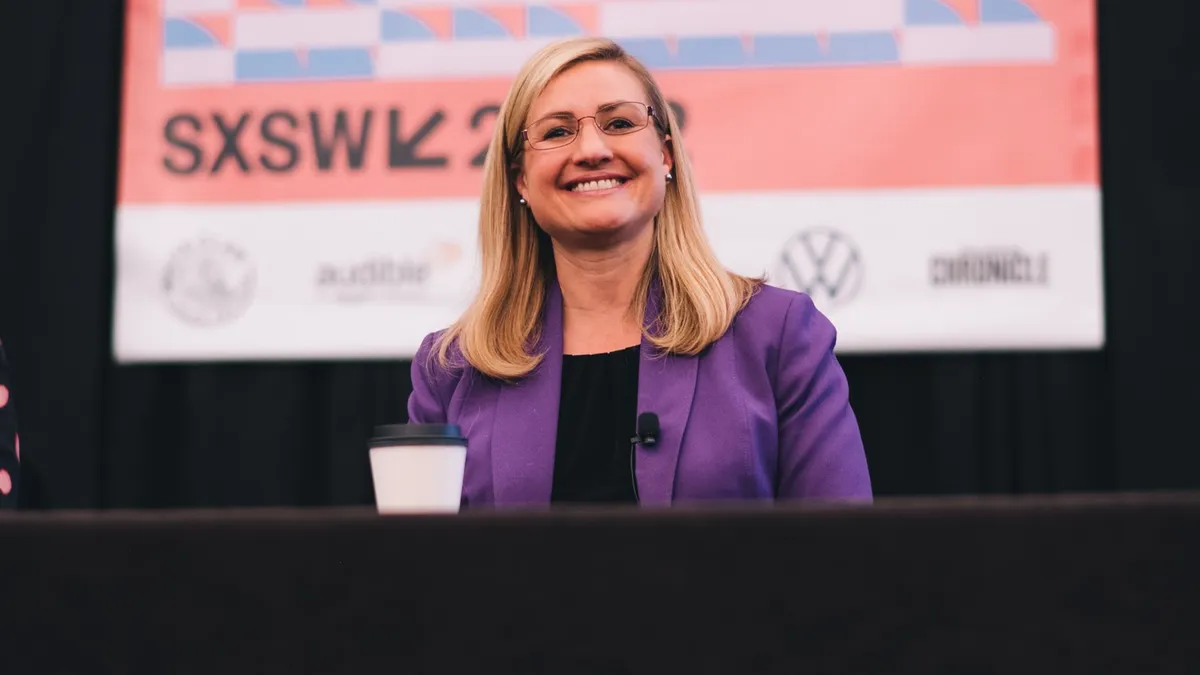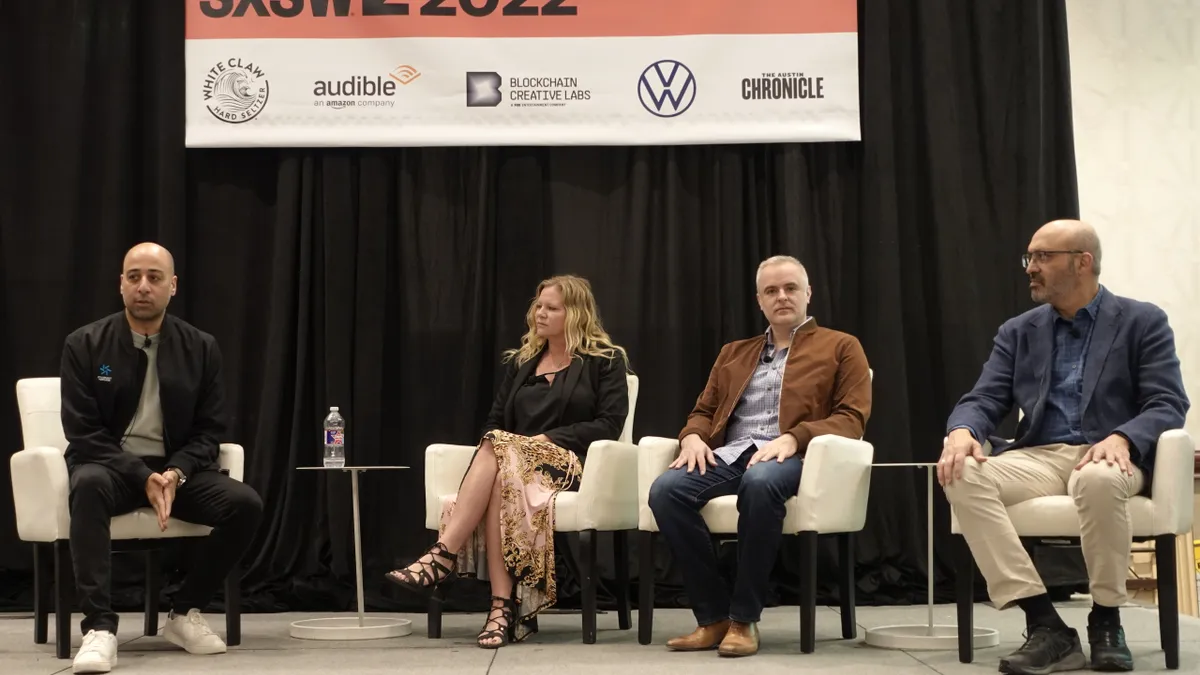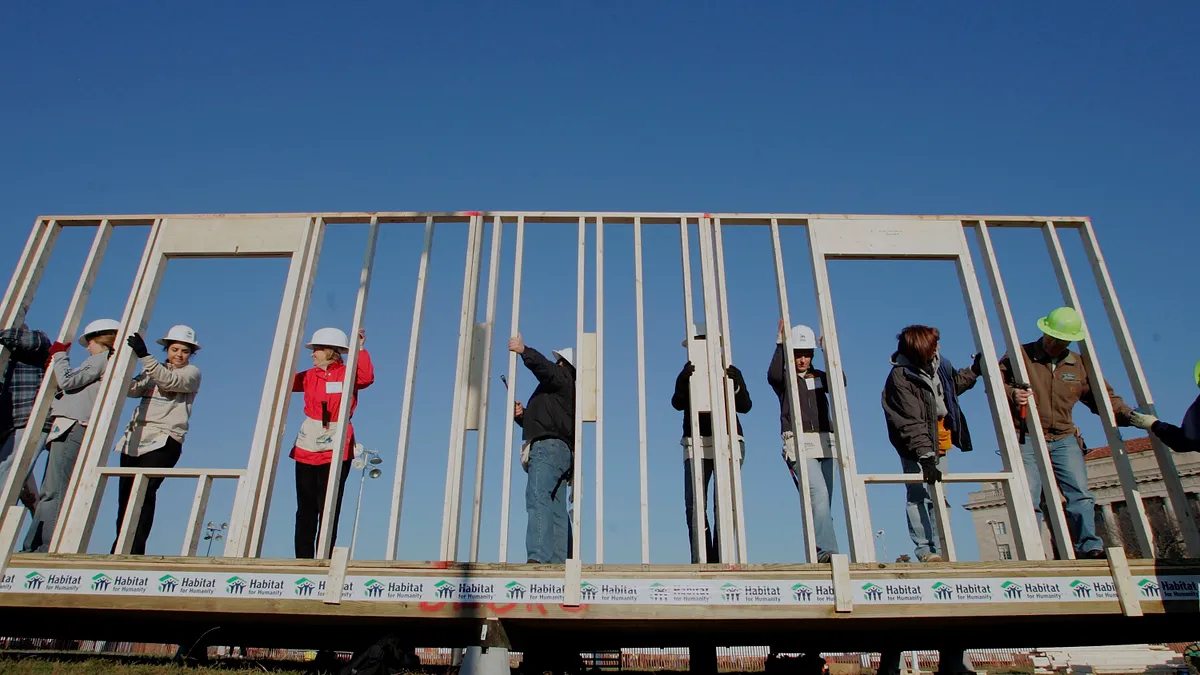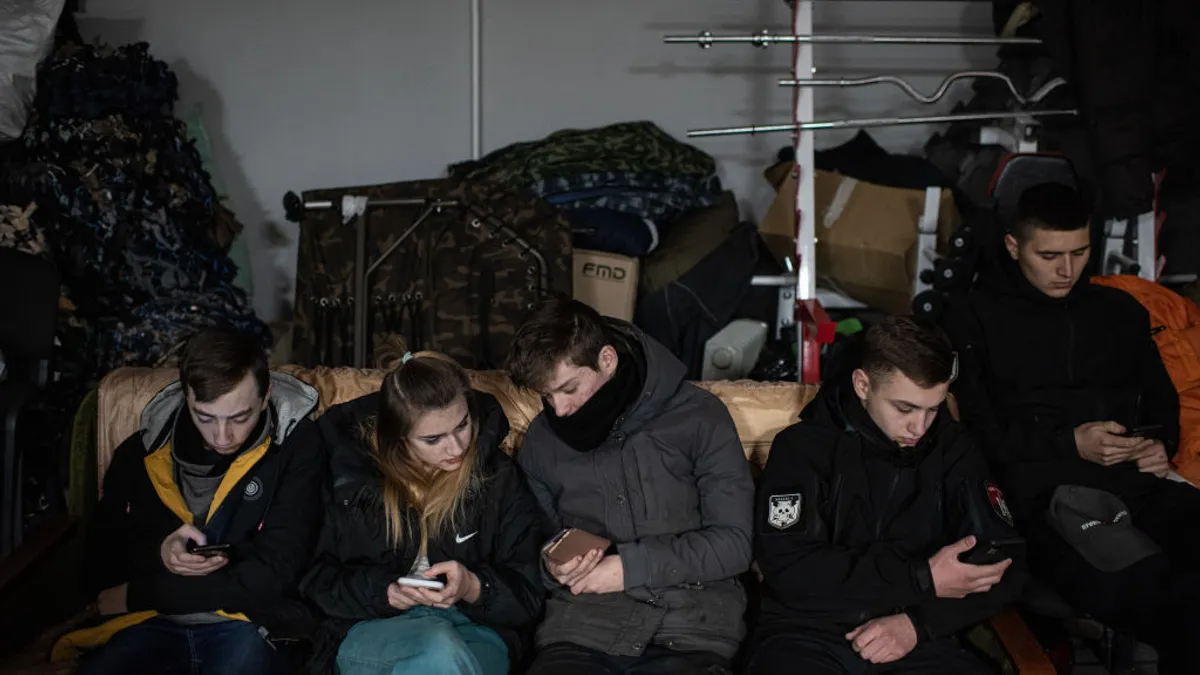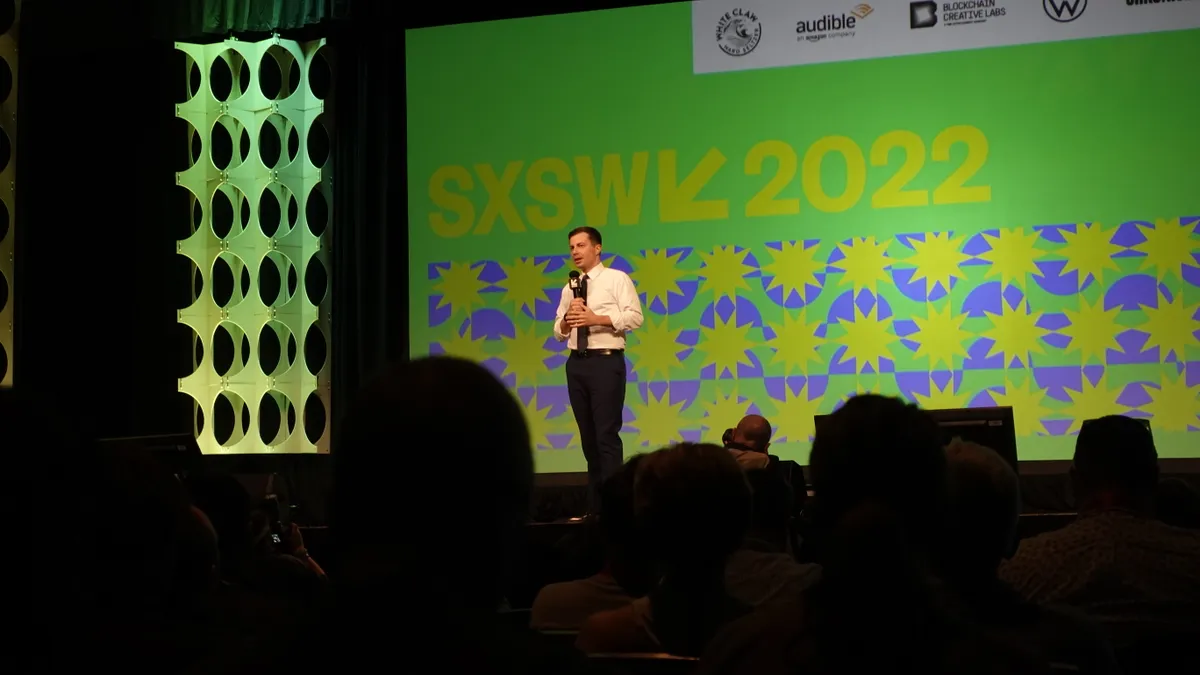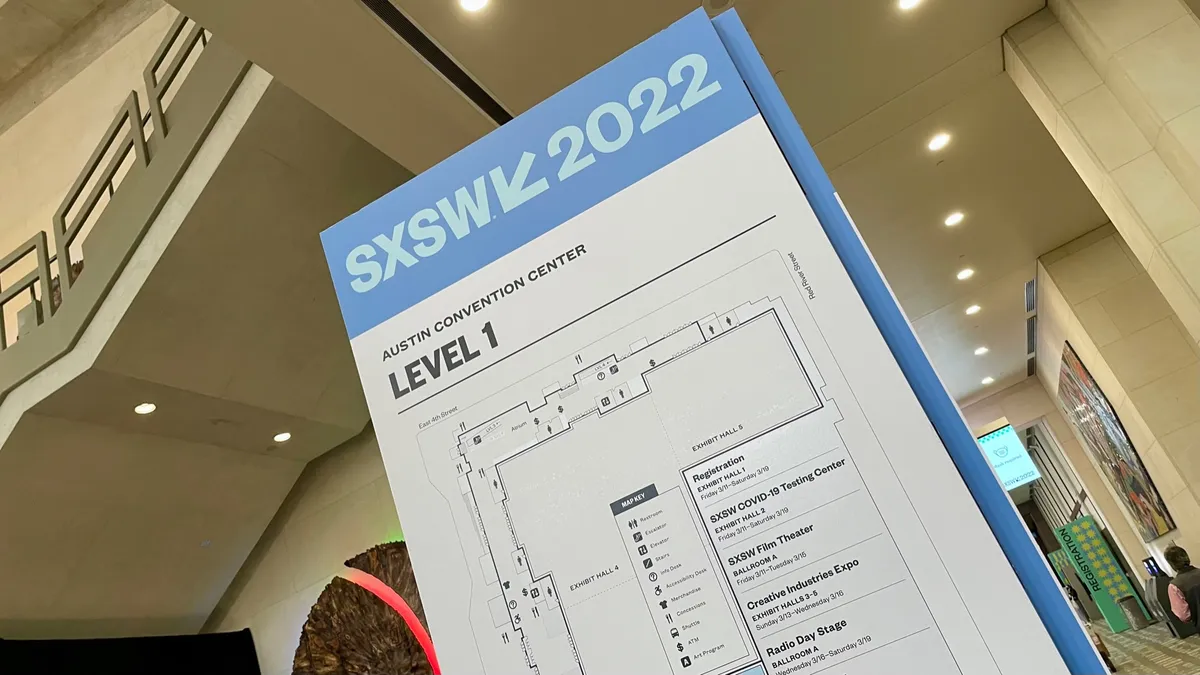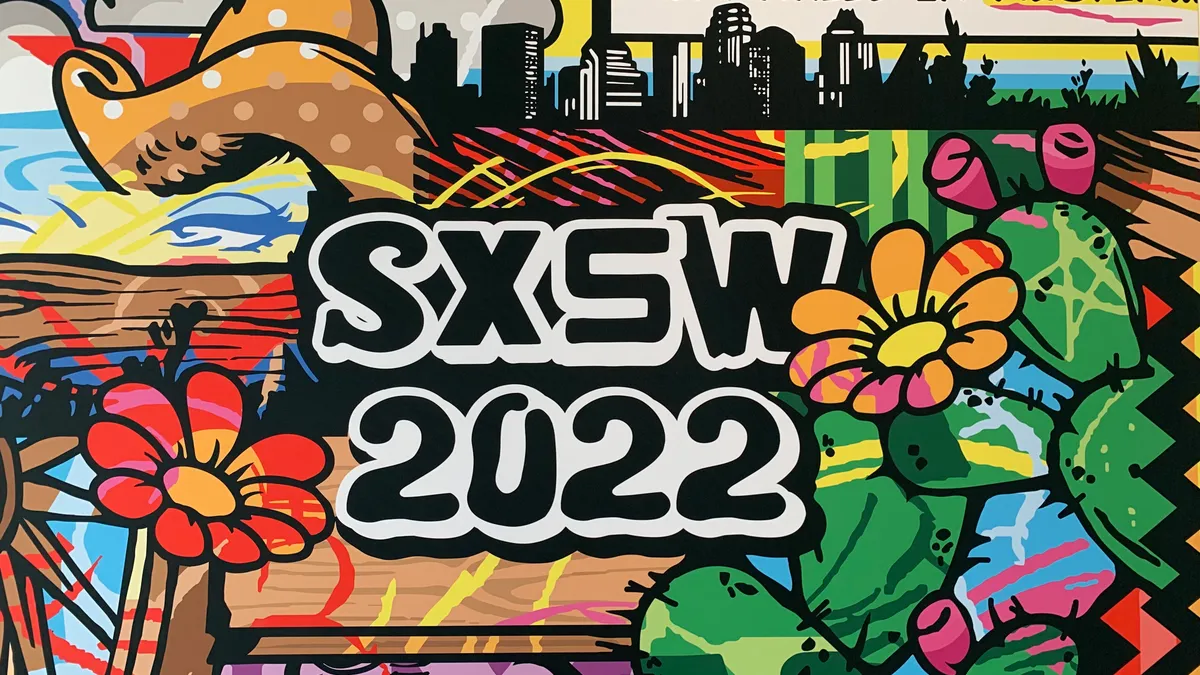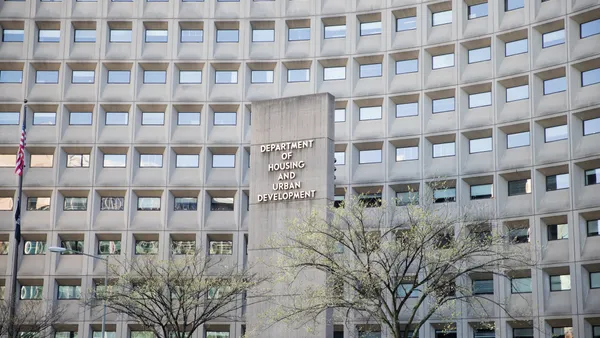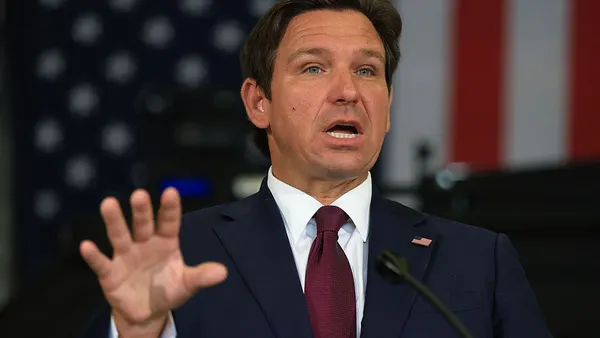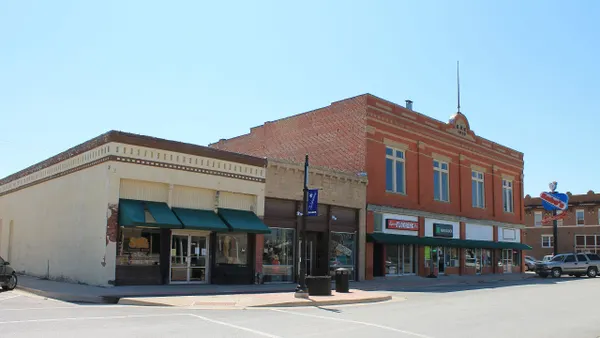Phoenix Mayor Kate Gallego faced many challenges when deciding whether to run for office, including her gender.
Prior to being elected in 2019, the now first-term mayor had just given birth and recently gone through a divorce. She also resigned from her previous position on the city council to focus on campaigning, thereby losing her paycheck, Gallego explained during a panel discussion at the SXSW conference last week in Austin, Texas.
Gallego considered research she had seen finding that women are more trusted in areas like healthcare and education, but less trusted in areas like public safety and economic development. She thought about the harsh response to other women who gave birth in office or on the campaign trail. She pointed to former Massachusetts Gov. Jane Swift who was criticized as a parent for her daycare decisions, and other choices as her young family grew on the campaign trail and in office. And she took into account that many of the country's other largest cities such as Los Angeles and New York City had never elected a woman as mayor.
“All of that made me very nervous and it took me a very long time to decide whether to take the jump and run,” Gallego said.
Ultimately, Gallego said she considered her support and the fact that she would regret not running for the rest of her life. "I’m glad I decided to go for it,” she said.
Gallego's fears were warranted, said Jean Sinzdak, associate director of the Center for American Women and Politics (CAWP) at Rutgers University. Sexism on the campaign trail and in the office is "pretty universal" for women in the U.S. "We hear the same stories over and over again," she said, during an interview.
When elected, women often bring their own life experiences with them, allowing them to bring unrecognized issues to the table, Sinzdak said. They are also more likely to bring underrepresented and marginalized groups into the policy-making process, she added.
But women remain largely underrepresented in elected offices throughout the political spectrum. At the local level, women hold less than one-third of elected legislative seats in cities and towns with populations over 10,000, an April 2021 analysis by CAWP found. Among mayors in cities with populations over 30,000, approximately 25% were women, according to May 2021 CAWP research. And among mayors in the top 100 most populated cities, 31 are women.
Women scored some key wins in mayoral races in 2021, though. Michelle Wu became the first woman and Asian American to be elected in the city of Boston. And there are now a historically high number of Black women mayors leading big cities. “We have seen an increase in recent years, it just hasn’t been skyrocketing. We’re not moving at a fast enough pace to get to parity," said Sinzdak.
As mayor, Gallego said people consider her "imperfect personal life" to be a reflection of the city. In one way, having a divorced mom elected as mayor can be a good thing because it means Phoenix is "a city of opportunity," she said. But not everyone sees it that way.
Mattie Parker, the mayor of Fort Worth, Texas, said during the SXSW panel that people have been pretty respectful of her personal life since taking office last year. But she has still endured sexist comments from some constituents. “People say the craziest things," she said.
Echoing some of these experiences, Tacoma, Washington, Mayor Victoria Woodards said in a separate interview that there have been times she's raised her hand to speak and was ignored. She said that women are taught to play by the rules, while men have no problem cutting each other off. She said a lot of her challenges are compounded by the fact that she is also Black.
“It’s not easy running for office and being a woman," Woodards said. "It’s not easy being an elected woman in office because as much as we think the world has changed, there are still definitely a lot of challenges for us as women."
Systemic barriers and solutions
Both Parker and Gallego said raising money for their campaigns was challenging and they had to rely on men to back them financially. With little name recognition among voters at the start of the race, Parker said she had to scrape for campaign dollars. "People wondered what I was doing,” she said, noting that she hopes one day women will not have "to grovel" for every single dollar.
Woodards, who also serves as the first vice president of the National League of Cities, said she believes that when she ran for mayoral and city council seats in the past, she had to work harder than her male opponents to prove why she deserved the support of political donors and voters.
During the 2020 election cycle, men outraised women, especially women of color. Women are more likely to give to women candidates, but men still provide the majority of money raised through individual contributions during gubernatorial races, a CAWP analysis found.
Another issue is that a lot of women are often not recruited or asked to run by party offices that throw their resources behind candidates, Sinzdak said.
“It’s shifting in recent years where we’re seeing more women becoming self-starters... they’re not waiting to be asked," she said. "But it’s still an issue when you think about who are the gatekeepers, who are the influencers. If we’re going to change anything in the long-term we really have to focus on the recruitment issue.”
To provide more parity in local elections, some cities have implemented ranked-choice voting, which allows people to support candidates who are not expected to win without feeling like they are throwing away their votes. In that system, if a voter's top pick receives the fewest first-preference votes, their ballot will instead be cast to their second or third choice for the seat, a process that continues until a candidate receives a majority of the votes.
“There’s evidence that seems to show that that could be very helpful to newcomers or especially women or people of color on ballots,” said Sinzdak.
In terms of campaign finance disparities, cities and states have placed limits on campaign contributions and cities, including New York City, have implemented small-donor public campaign financing measures.
But local grassroots groups and party leaders need to do a better job with recruiting a more diverse group of candidates, said Sinzdak.
Cities could also chip away at the disparity by paying their mayor a livable wage, Woodards added.
“It’s a full-time job with part-time pay,” she said, adding that cities must ensure they are "providing real jobs for women when they want to run for office."
Parker said she believes her experience will not be shared by future generations. “Things are going to get better. I do have that hope."



